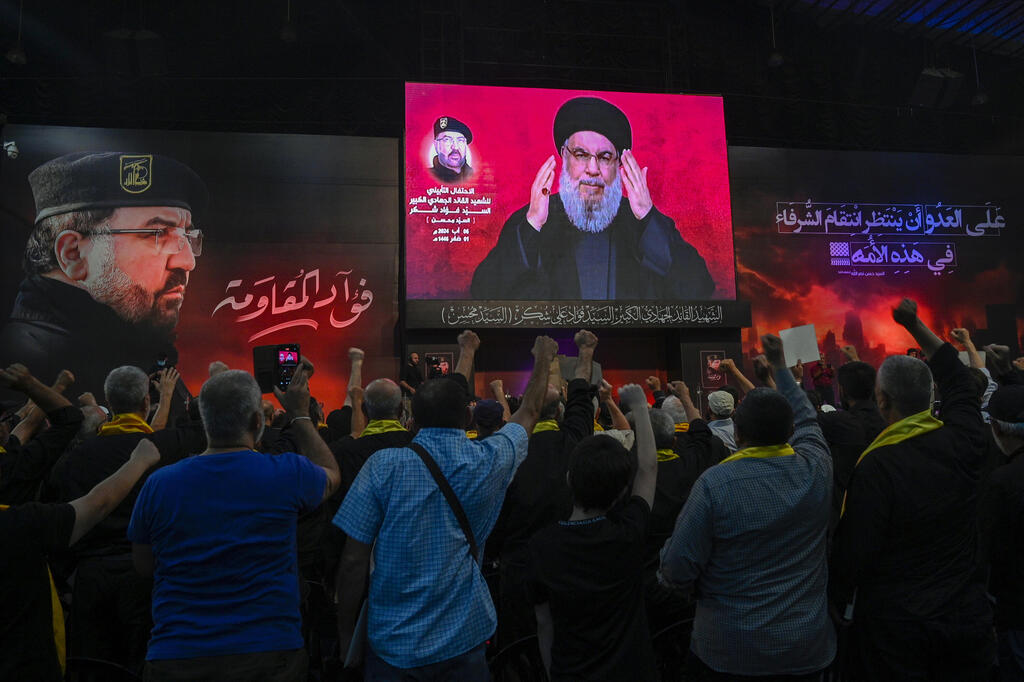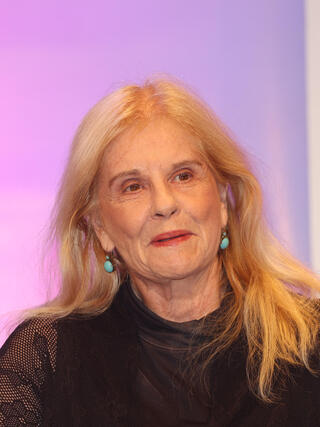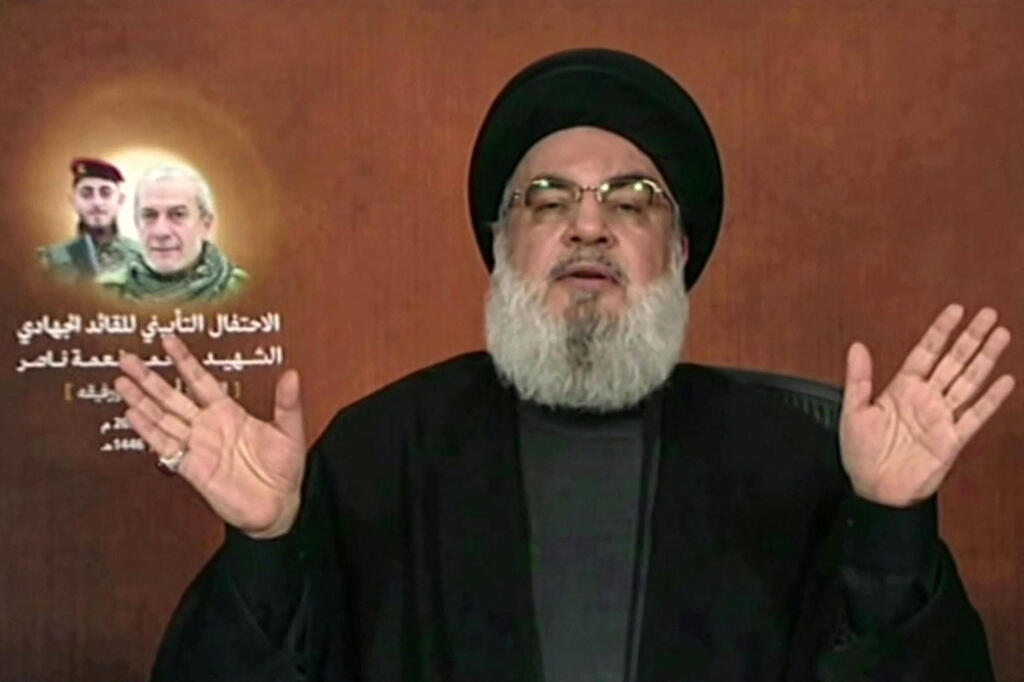In a particularly long-winded speech on Tuesday, Hezbollah leader Hassan Nasrallah hid behind a jumbotron and addressed his followers under the open sky in Beirut's Dahieh district, his home turf.
In his confused speech, Nasrallah sent mixed signals regarding Hezbollah's intentions toward Israel following the assassination of their top commander, Fuad Shukr. He also again denied Hezbollah's involvement in the rocket attack that killed 12 Israeli Druze children who were playing soccer in Majdal Shams.
2 View gallery


Hezbollah leader Hassan Nasrallah speaks before his followers in Beirut's Dahieh district
(Photo: EPA/WAEL HAMZEH)
Teetering on the fine line between threatening Israel and trying to appear victorious for his viewers, Nasrallah hinted at a future response to Shukr's assassination as he listed Israel's strategic assets and elaborated on the economic devastation a Hezbollah attack would visit upon it.
Although he boasts that, "it is possible to destroy them all within half an hour, an hour at most," he again projects a defensive posture, asserting that Hezbollah has no interest in a full-scale military engagement but is prepared to respond if Israel instigated one.
Nasrallah also dismissed international mediators who have been pushing Hezbollah to refrain from retaliatory actions as "insolent messengers."
Throughout his address, Nasrallah used the backdrop of Shukr’s image to underscore his points. All that was missing was hearing him tout the assassinations of Hamas leader Ismail Haniyeh in Tehran and Shukr in Beirut as impressive Israeli accomplishments.
Nasrallah hinted at a coordinated military response involving Iran, Hezbollah and Yemen's Houthis, conspicuously excluding Syria from the list despite it allowing the three to freely operate from within its territory against Israel. From his point of view, the fact that President Bashar al-Assad allows Iran and Hezbollah to operate inside military bases in Syrian territory and to stockpile weapons and munitions is more than enough for their collective war effort.
"At the very least, shut up"
It became evident that Nasrallah is not too fond of Lebanese and Arab media outlets that are critical of him. During his speech, he tried to reason with them, as he seems to believe they were serving Israel's interests.
"At the very least, shut up," Nasrallah told off his critics. Those channels later reported that "Nasrallah has trapped himself and he does not know how to get out of the threats he made against Israel." Nasrallah never claimed his "retaliation" was aimed at eliminating the "Zionist entity", but to restrain Israel and prevent it from striking Hezbollah.
A very senior academic with whom I corresponded immediately after the speech, insisted that Nasrallah could not afford to to declare that Hezbollah would start a war against Israel in a polarized Lebanon. Nasrallah said that "even the raised Israeli alertness in preparation for the attack is part of the campaign," and clarified he still does not know whether the response will include the Iranians.
 Smadar Perry Photo: Yariv Katz
Smadar Perry Photo: Yariv KatzAs in his previous appearances, it was also clear from his speech that he does not intend to go to war for the Gazans. Hamas will manage without him. The key sentence in the speech, which my friend agreed with, was: "We do not want war." Then Nasrallah immediately hastened to add that "we must be ready, and if the need arises, the Zionists will get a surprise they never dreamed of."
In Lebanon, the speech was received with great skepticism but also with fear of escalation as the Lebanese people continued to flee their homes. Several prominent figures, such as Claudine Aoun, the former president's daughter, called on Lebanese officials to reach a cease-fire and a diplomatic agreement with Israel.



